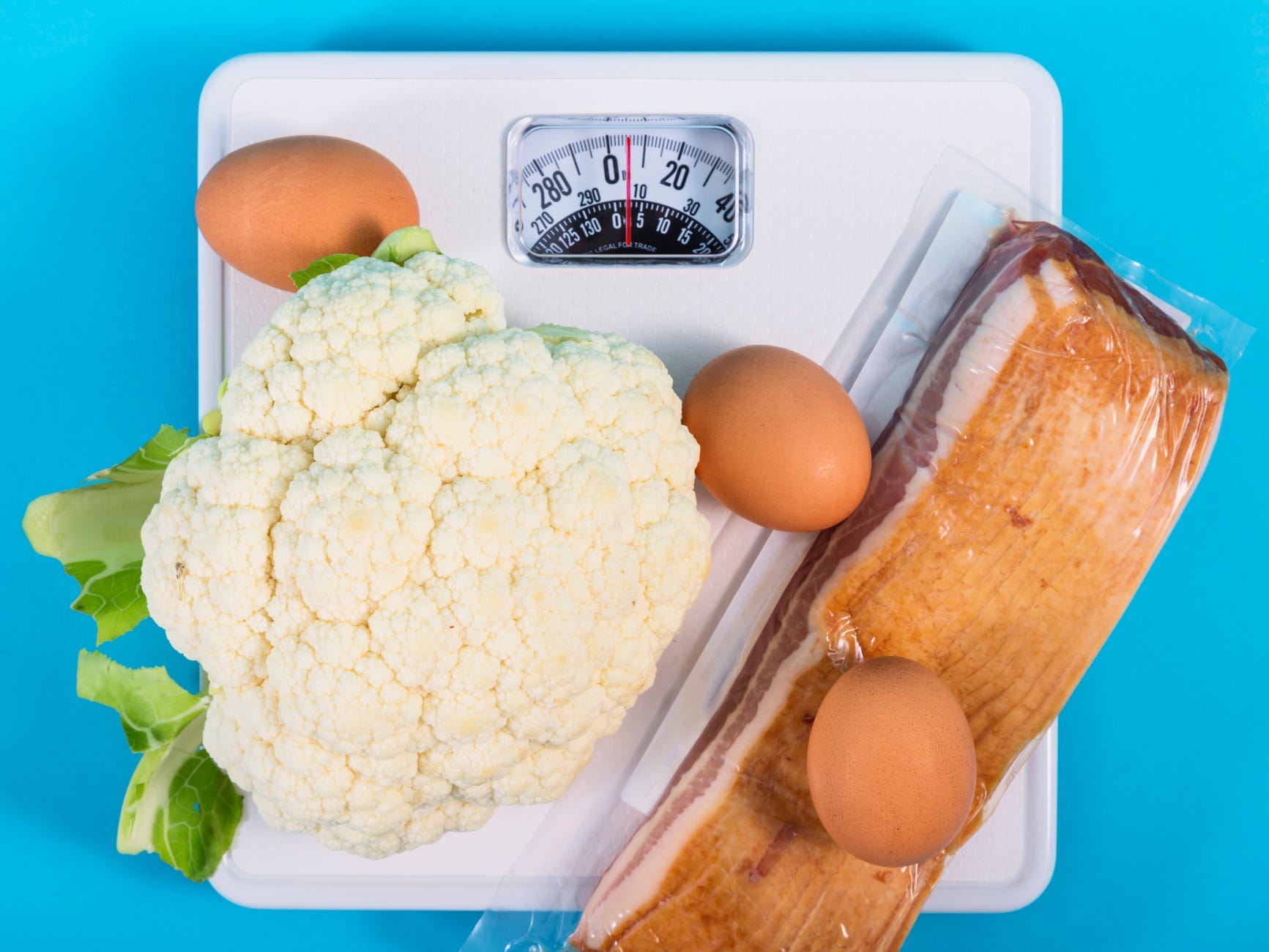
- A low-carb diet and exercise plan could be twice as effective as calorie restriction in helping people with diabetes lose weight, according to research.
- That’s because temporarily decreasing carbohydrate consumption can help restore normal levels of insulin, reducing the “hidden risk” of diabetes, heart disease, and cancer.
- The keys are to focus on high-quality protein, healthy fats, plenty of fiber, regular exercise, and cutting out processed foods and refined carbs, according to a dietitian.
- Visit Insider’s homepage for more stories.
Counting carbohydrates, not calories alone, could boost weight loss for people struggling on a regular diet, particularly those with diabetes, according to research presented at the 2020 European and International Obesity Congress.
That’s because as many as many as 75% of people with obesity could have undiagnosed insulin resistance, which could be stalling weight loss efforts, lead author and registered dietitian Ellen Govers said in an online presentation.
In the study, researchers from the Netherlands compared three types of weight loss diets in 380 obese patients who had type 2 diabetes, including a calorie-restriction diet, a low carb diet, and the 6×6 diet, which is a three-phase low-carb program.
They found that the 6×6 diet was twice as effective as a standard calorie-restricted diet in helping patients achieve a significant amount of weight loss, reduced insulin resistance, and lowered blood pressure, without medication.
This suggests that the common weight loss approach of considering calories instead of macro nutrients like carbs, fat, and protein may not be effective for people with diabetes, pre-diabetes, metabolic syndrome, or other issues with insulin sensitivity.
"This is still the mainstream opinion about weight loss in primary care — calorie restriction and physical activity are well enough, and a calorie is a calorie," Govers said. "Well this is true in a lot of people, but in a very large part of the population of people with obesity, weight loss staggers after 3% weight loss. We think insulin resistance is the problem."
Temporarily cutting carbs, and increasing fiber and protein in your diet, could help
The 6x6 diet has three phases of carb-cutting, combined with overall changes to diet such as eliminating processed foods, increasing protein and fiber, and eating vegetables with every meal. The diet doesn't restrict calories in any way, and patients encouraged to eat plenty of healthy fats such as fish, olive oil, nuts, and seeds.
In the first phase, patients limit their carb intake to no more than 36 grams a day, and boost their protein intake to 1.2 grams or more per kilogram of body weight, ideally while limiting consumption of meats, and cutting out all alcohol.
But that very low level of daily carbs is temporarily, part of the initial phase of the diet, Govers said.
The second phase of the diet increases carb intake, and in the third phase, once a person achieves their initial weight loss goal, they can gradually re-introduce even more carbs into their diet.
When they stop losing weight, that suggests they've reached their personal levels of optimal carb intake, and this can be used to maintain a healthy weight, according to Govers.
"This is a very individual need. Everyone has their own carbohydrate need, and this also counts for healthy people," she said.
On the 6x6 plan, 46.9% of patients lost 5% or more body weight in 12 months, and 40% normalized their blood sugar levels, compared to 40% and 30%, respectively, on a standard low-carb diet that limits carbohydrate intake to 50 to 100 carbs a day.
The plan was significantly more successful for patients than a calorie-reduced low fat diet, in which patients ate 600 fewer calories per day than usual, with a moderate amount of carbs.
Insulin resistance can be a 'hidden disease' linked to obesity, heart disease, and cancer
Insulin is a hormone that regulates blood sugar, or glucose. Insulin resistance occurs when the body becomes less responsive to that hormone and less effective at transferring glucose to cells for energy, causing spikes in blood sugar and subsequent health issues. Eating carbs raises blood sugar levels, which can exacerbate this issue.
Govers explained that this very low carb approach can help with weight loss, even without cutting calories, because people with insulin resistance can be particularly susceptible to gaining weight in response to a standard diet that might include 50% or more of daily calories in the form of carbs.
Insulin resistance can also increase the risk of chronic illnesses like heart disease and cancer. People with obesity can be particularly at risk, Govers added, but it also affects people who appear to be healthy. A blood test is the best way to determine whether insulin resistance is an issue.
"It's not just about weighing and measuring waist circumference, it's more about physiology and looking at how healthy a patient is," she said.
Diet alone isn't enough — exercise, mental health, and lifestyle are also crucial
The 6x6 plan also incorporates exercise and other lifestyle factors, which are crucial to its success, Govers said.
In addition to cutting carbs, patients are told to exercise at least two to three times a week for an hour a day, ideally incorporating some form of endurance training.
Govers also cautioned that dietitians and weight loss professionals should be aware of the potential for hidden eating disorders in clients.
"A health professional needs to sort that out before starting any treatment," she said.
Read more:
How to burn fat without losing muscle, according to a keto bodybuilder
